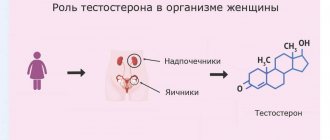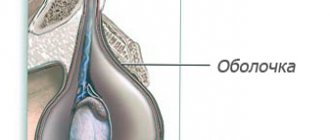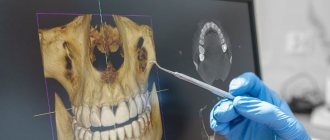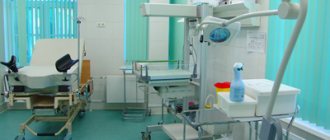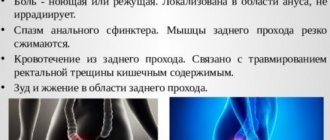Blood in the stool: possible causes
People usually do not attach importance to the process of defecation, and even less so to its result. However, sometimes it is still worth paying attention to your own stool, so as not to miss changes that require medical intervention. So, blood in the stool is often not only a bright, but also a menacing messenger of possible trouble, and you need to know the enemy by sight.
Where can blood come from?
Normally, at the end of the digestive act, masses of a uniform color are formed due to pigments. There is no blood, or more precisely, red blood cells. If at any stage the integrity of the epithelial cover and the blood vessels underneath is compromised, the red blood cells mix with the contents and change the color of the stool at the exit depending on their number and the location of the bleeding.
The bright red color of stool is given by unchanged red blood cells, which signal problems in the lower gastrointestinal tract - the large intestine. Bleeding from the esophagus, stomach or small intestine looks different - red blood cells are exposed to hydrochloric acid, enzymes and intestinal contents and turn the stool dark red or red-brown. Such a change is not always visible to the naked eye and requires laboratory confirmation methods, so we will look at the main reasons for the appearance of unchanged blood in the stool.
Haemorrhoids
One of the most common causes is hemorrhoids, which affects about 10% of the adult population aged 30 to 50 years. This disease affects men several times more often.
Special veins - cavernous bodies - become deformed and enlarge, forming the well-known hemorrhoids under the intestinal mucosa. Since they are abundantly supplied with blood and, unlike other veins, have a connection with arteries, when the intestinal wall is damaged, the blood is released scarlet, does not mix with feces, or leaves bright marks on toilet paper.
Hemorrhoids “bleed” after defecation. Bleeding from hemorrhoids is the main manifestation of this insidious disease. It does not stop well and, if prolonged, can lead to the development of anemia, so it deserves close attention.
Cracks
Another problem in the anus is an anal fissure. It is a tear where the rectal mucosa meets the skin. And since the integrity of the cover is broken, the appearance of blood will not be long in coming. But in this case, blood is released in droplets, not as abundantly as with hemorrhoids, and small stripes on the surface of the stool are noticeable in the stool. This phenomenon is not always obvious; a sharp, even burning pain during defecation, which often lasts several hours after it, can be more alarming.
Oncology
Rectal cancer is one of the most “evil” cancer diseases. It develops unnoticed for a long time, and in this situation, paying attention to yourself will be a good help, since the main early manifestation of the disease is blood in the stool.
Bleeding in cancer is caused by ulceration of the tumor surface and traumatization by feces; it is rarely massive and more often looks like a small amount of dark red impurities. But you should not be immediately alarmed if you discover something like this, since this is only one of the signs and it is necessary to take into account pain, the presence of mucus in the stool or difficulties in defecation, as well as general symptoms. A doctor will help you figure it out.
Ulcer
Nonspecific ulcerative colitis also causes bleeding and the appearance of red blood cells in the stool. The very name “ulcerative” indicates the formation of a defect - “ulcer”, which in this disease affects the mucous membrane of the colon.
UC, as doctors affectionately call it, occurs with periods of exacerbation, when inflammation acquires pronounced features. As a result, the capillaries of the mucous membrane expand, the epithelium becomes necrotic, and blood appears in the stool. At the same time, the very nature of the stool changes - it becomes more frequent, thins out, and patients are often bothered by “bloody” diarrhea. Blood in the stool can be either abundant, covering it, or in the form of impurities - it all depends on the extent of the lesion.
This disease is often accompanied by anemia, since the intestine bleeds every time there is an exacerbation, and in some cases there is no relief at all.
Intestinal inflammation
Another inflammatory disease characterized by blood in the stool is proctitis, i.e. inflammation of the rectal mucosa. The causes of proctitis can be very different, from radiation to parasites, and it is always important to find out them in order to successfully fight the disease. The nature of the stool will help suggest proctitis - bloody discharge in the form of impurities, usually light.
Causes of bleeding from hemorrhoids
In most cases, bleeding from hemorrhoids occurs when internal hemorrhoids are traumatized during defecation. The main cause of hemorrhoidal bleeding is constipation and excessive straining. Bleeding from hemorrhoids occurs due to the following reasons:
- Disturbances in the outflow of venous blood from the corpora cavernosa in the walls of the rectum;
- The presence of branched cavernous bodies;
- Genetic functional underdevelopment of connective tissue;
- Disturbances of the innervation of the venous walls.
Concomitant factors that can cause bleeding include increased pressure in the veins of the peri-rectal area caused by chronic constipation, prolonged standing or sitting, pregnancy and heavy physical labor associated with systematic lifting of weights. Bleeding from hemorrhoids often develops against the background of regular abuse of alcoholic beverages and spicy foods, obesity, liver cirrhosis with portal hypertension. The development of hemorrhoidal bleeding is often caused by a violation of the outflow of blood from the pelvic organs due to compression of the pelvic vessels by the enlarged uterus during pregnancy.
Effective rectal suppositories for bleeding
To treat hemorrhoids that bleed, suppositories are used. These drugs not only reduce bleeding, but also eliminate other signs of pathology. Suppositories stimulate regeneration processes and eliminate pain in the anus. Rectal suppositories are commonly used to treat internal hemorrhoids.
The peculiarity of these suppositories is that at normal room temperature they will not melt, however, when they are introduced into the rectum, a rapid effect is observed, especially with severe bleeding.
The following drugs effectively help with hemorrhoids during bleeding:
- Anuzol;
- Methyluracil;
- suppositories with propolis;
- Hepatrombin;
- suppositories with adrenaline;
- Relief (Relief Advance or Relief-ultra);
- homeopathic suppositories.
Anuzol
The drug contains bismuth, zinc and belladonna extract.
The product effectively helps if hemorrhoids are bleeding. Anuzol relieves pain and has a hemostatic effect. In addition, it reduces the inflammatory process in the rectum and eliminates burning and itching sensations.
Methyluracil suppositories
This medicine for hemorrhoids treats wounds and fissures of the anus, helps reduce bleeding from hemorrhoids. Restores damaged tissue and protects against pathogenic bacteria. Excellent for heavy bleeding from the anus.
Side effects may rarely occur when using methyluracil suppositories.
Suppositories with propolis
Propolis, which is part of the drug, increases blood clotting, as a result of which bleeding stops. The drug fights inflammation of the rectum and stops the growth and reproduction of pathogens in the anus. It is recommended to insert one candle into the anus before bed every day.
The use of propolis-based suppositories is permitted during pregnancy and lactation.
Ready-made suppositories can be purchased at any pharmaceutical establishment. In addition, such candles can be prepared at home. To do this, simmer Vaseline and cocoa butter in a water bath, and add propolis to the mixture. Then the product is poured into foil forms and frozen in the refrigerator.
Hepatrombin
Candles contain the following active ingredients:
- heparin;
- allantoin;
- lemon oil;
- dexpanthenol, a B vitamin;
- pine oil.
Thanks to the pharmacological properties of these substances, bleeding quickly stops and swelling in the anal area is relieved. In addition, the product prevents blood clots.
At the local level, under the influence of suppositories, blood supply and metabolic processes improve. Candles allow you to speed up the recovery of damaged tissue.
Adrenaline suppositories
The active component stops blood in the rectum, due to its ability to increase blood clotting.
These candles have some restrictions on their use. An adverse reaction of the drug is an increase in blood pressure. Therefore, it is not recommended to use the medicine to treat hemorrhoids in elderly patients.
Types of bleeding and their elimination
Hemorrhoidal bleeding can be scanty or profuse.
Scanty bleeding is characterized by the appearance of several spots of blood on linen or paper after visiting the toilet.
Heavy bleeding begins with the loss of 1-2 ml of blood. But if left untreated, it can quickly progress to the stage of massive blood loss, which poses a great threat to health.
To eliminate bleeding, you need to wash yourself with cool, but not cold water, otherwise paraproctitis may be added to hemorrhoids. This brings instant relief as the inflamed nodes shrink in size, closing the outlet for blood.
After washing, it is necessary to apply an ointment that has anti-inflammatory and anticoagulating effects to the affected area.
At the initial stage of the disease, the use of such medications eliminates symptoms, and with advanced hemorrhoids, it alleviates the patient’s condition, reducing swelling of the anal mucosa, soothing pain and relieving burning.
Bleeding is a sign that a fissure has appeared in the anus. If no action is taken to treat hemorrhoids, over time it will be complicated by anemia, up to severe severity with hemoglobin less than 80 g/l, chronic reflex constipation, and can transform into a bleeding tumor.
Regardless of whether the bleeding is scanty or heavy, you must immediately consult a doctor! You can consult online with a therapist or proctologist.
Treatment of hemorrhoids accompanied by slight bleeding
To cope with the disease, it is important to find the right method of dealing with it. Some people benefit from diets and suppositories, while others need surgery.
At the first manifestations of the disease, you must adhere to simple rules of nutrition and hygienic care.
Diet food
Review your diet by eliminating everything fatty, fried, spicy, pickled, as well as desserts, coffee and alcohol.
The daily diet should include cereals (with the exception of semolina, rice and corn), soups with a mucous consistency, stale or dried bread, lean meat or dietary fish, steamed, drinking plenty of fluids (decoctions of berries and herbs, non-acidic natural juices).
Taking cool baths
As a bath, it is best to use decoctions of herbs with anti-inflammatory or astringent effects - chamomile, calendula, oak bark.
The decoction for each procedure must be freshly prepared and sufficiently cooled. You need to sit in it every day for 10-15 minutes. As an alternative to baths, wiping the anus with a piece of ice is used.
Replacing toilet paper by flushing
Since the main reason for non-healing of erosion in the anus is the entry of feces into the wound, they must be disposed of after each act of defecation by regular washing.
Use of topical medications
Ointments and suppositories will not cure on their own if the disease is advanced and progresses. But if used regularly at the initial stage, they can help.
A good remedy for bleeding hemorrhoids is suppositories with sea buckthorn oil.
Diagnosis of bleeding from hemorrhoids
Proctologists determine the presence of bleeding based on patient complaints, information about the development of the disease and data from a proctological examination. The severity of blood loss is determined based on blood tests. In order to clarify the source of bleeding, instrumental studies are performed:
- Anoscopy;
- Sigmoidoscopy;
- Colonoscopy.
In some cases, irrigoscopy and ultrasound examination of the abdominal organs are performed. These studies allow the patient to exclude the presence of malignant neoplasms of the large intestine, anal fissure, rectal prolapse, ulcerative colitis, Crohn's disease, submucosal hemangioma, and solitary rectal ulcer.
Treatment of hemorrhoids accompanied by heavy bleeding
When hemorrhoids are inflamed and enlarged, blood can flow in a stream not only when visiting the toilet, but also with any sudden movement or physical stress.
In this case, you need to take effective medications. Remember that only your attending physician can prescribe them, taking into account the course of the disease and the individual characteristics of the body.
Treatment methods for hemorrhoids with heavy bleeding:
- Taking tablet medications.
- The use of anti-inflammatory ointments and suppositories. Inexpensive candles (average price 50-120 rubles): Belladonna extract, Anuzol, Methyluracil, Betiol. The most effective (300-600r): Relief, Procto-glivenol, Ultraproct, Nigepan, Proctosan, Hepazolon. In some cases, injections of hemostatic drugs.
Doctor's advice
Everyone has heard that there is food that strengthens, and there is food that weakens. But people often confuse the properties of their usual food products. It is worth paying attention to the ability to produce gas - this can contribute to additional discomfort with hemorrhoids.
Victoria Druzhikina Neurologist, Therapist
- If there is a risk of anemia, take vitamins C and K, as well as preparations containing iron.
- Sclerotherapy using medications.
- Radical measures are surgery. It is used in cases where other methods do not produce results or their use is futile, the decision is made by the surgeon.
If you are in doubt about which candles to choose, consult your physician.
Medicinal herbs for the treatment of hemorrhoids
Our grandmothers also used herbs with enveloping, anti-inflammatory and astringent effects to treat hemorrhoids, which are very effective for use at home.
To the already mentioned chamomile, calendula and oak bark, you can add yarrow, blueberries, and wheatgrass root. Decoctions from these plants are suitable for both baths and mini-enemas.
Aloe juice has a therapeutic effect in the fight against hemorrhoids, preventing inflammation and healing cracks. All herbs should be started at low concentrations to avoid possible allergic reactions if tolerance to a particular herb is unknown.
Juice and gruel from raw potatoes are used with great success in the treatment of hemorrhoids. Potatoes can stop bleeding, speed up the healing of cracks, and restore the condition of the rectal mucosa.
Hemorrhoids are a very unpleasant disease that causes discomfort. As the disease progresses, bleeding may occur. To avoid this, do not start the disease, but at the first symptoms, contact a specialist who will prescribe effective treatment, taking into account all the characteristics of your body.
Treatment of patients with bleeding from hemorrhoids
For bleeding from hemorrhoids, suppositories with adrenaline, vasotonics, and local hemostatic materials that contain fibrinogen, collagen, and thrombin are used. Local therapy is combined with parenteral therapy or the administration or ingestion of hemostatic drugs (vicasol, etamsylate, dicinone). A 10% solution of calcium chloride is prescribed orally. Natalsid rectal suppositories contain the active ingredient, a natural polysaccharide, which is obtained from brown seaweed. It has a pronounced hemostatic effect, and therefore is the drug of choice for chronic bleeding hemorrhoids.
If conservative measures are ineffective, proctologists inject sclerosing substances into the bleeding hemorrhoids or tighten them with latex rings. Dearterialization of hemorrhoids with lifting is carried out using a special device that combines an anoscope and a duplex scanning device.
If blood appears in the stool or in the toilet due to hemorrhoids, what should you do? Call or make an appointment with a proctologist online. Doctors at the proctology department of the Yusupov Hospital are fluent in all methods of stopping hemorrhoidal bleeding. Patients begin to receive emergency care in the emergency department. After hospitalization in the proctology department, a comprehensive examination is carried out, the optimal tactics for managing the patient are determined, and treatment is carried out using the latest medications, blood replacement fluids and innovative minimally invasive procedures.
Product table
| The product's name | Fastens | Weakens | Gives gas formation |
| Cabbage | + | + | |
| Whole milk | + | + | |
| Sour milk | + | ||
| Beet | + | ||
| Bakery | + | ||
| Peas | + | ||
| Egg | + | ||
| Semolina | + | ||
| Cream | + | ||
| Potato | + | ||
| Fatty meat | + | + | |
| Plum | + | ||
| Chokeberry | + | ||
| Pear | + | ||
| Black bread | + | ||
| Rice | + | ||
| Pomegranate | + | ||
| Apricot | + | ||
| Persimmon | + | ||
| Black tea | + | ||
| Walnut | + |
Find out about the most effective candles from the video:
This article has been verified by a current qualified physician, Victoria Druzhikina, and can be considered a reliable source of information for site users.
Bibliography
1. https://www.gastroscan.ru/literature/authors/9497
Rate how useful this article was
4.4 16 people voted, average rating 4.4
Did you like the article? Save it to your wall so you don’t lose it!


